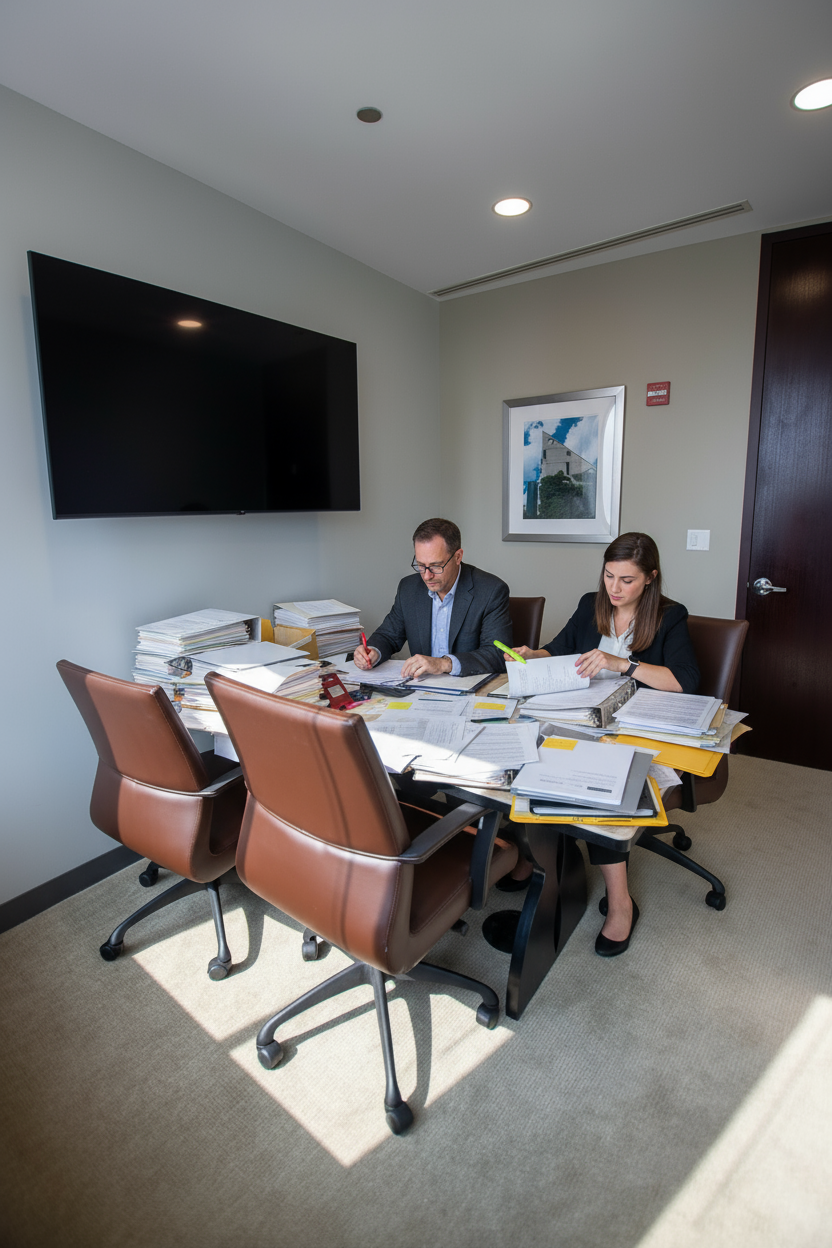The Impact of Whistleblowers in Fraud Detection
Understanding Whistleblowers: Who They Are and What They Do
Whistleblowers are individuals who expose unethical, illegal, or fraudulent activities within organizations, often at great personal risk. They play a critical role in uncovering misconduct that might otherwise remain hidden, ensuring accountability and justice. Whistleblowers can be employees, contractors, or even third-party stakeholders who witness wrongdoing and decide to report it. Their actions often stem from a strong sense of ethics and a commitment to transparency.
The types of fraud whistleblowers commonly uncover are diverse and impactful. Corporate fraud, such as embezzlement, insider trading, and accounting manipulation, is a frequent target. Government corruption, including bribery and misuse of public funds, is another area where whistleblowers have made significant contributions. Financial crimes, such as money laundering and tax evasion, are also often exposed by whistleblowers who have access to internal records and processes.
However, whistleblowing is not without its ethical and legal implications. On one hand, whistleblowers are lauded for their courage and integrity. On the other, they may face accusations of betrayal or disloyalty, especially if their actions lead to significant consequences for their organization. Legally, whistleblowers must navigate complex frameworks to ensure their disclosures are protected and valid. This delicate balance underscores the importance of understanding the role whistleblowers play in fraud detection and forensic accounting.
The Importance of Whistleblowers in Fraud Detection
Whistleblowers are indispensable in identifying fraud that might otherwise go unnoticed. Many fraudulent activities are deliberately concealed, making it nearly impossible for external auditors or regulators to detect them. Whistleblowers, as insiders, have access to critical information that can expose these hidden schemes. Their unique position allows them to provide evidence, context, and insights that are often unavailable through other means.
High-profile fraud cases have demonstrated the importance of whistleblowers. For example, the Enron scandal, one of the most infamous corporate fraud cases in history, was brought to light by Sherron Watkins, a whistleblower who worked as an executive at the company. Similarly, the case of Bernie Madoff’s Ponzi scheme was partially exposed by Harry Markopolos, who persistently raised concerns about the fraudulent investment practices. These examples highlight how whistleblowers can catalyze investigations and bring perpetrators to justice.
The insider perspective of whistleblowers is invaluable. They often witness irregularities firsthand, such as falsified documents, suspicious transactions, or unethical behavior. This access to real-time information enables them to provide detailed accounts that can serve as the foundation for legal and regulatory action. Without whistleblowers, many fraud cases would remain buried, allowing unethical practices to continue unchecked. Forensic accounting often relies on the insights provided by whistleblowers to uncover hidden fraud.
Legal Protections for Whistleblowers
To encourage whistleblowing and protect those who come forward, several laws have been enacted to shield whistleblowers from retaliation. The Sarbanes-Oxley Act, for instance, provides protections for employees who report corporate fraud, ensuring they cannot be fired, demoted, or harassed for their disclosures. Similarly, the Dodd-Frank Act includes provisions for whistleblower reward programs, offering financial incentives to individuals who report securities violations.
The False Claims Act is another critical piece of legislation, particularly in cases involving government fraud. Under this act, whistleblowers can file lawsuits on behalf of the government and receive a portion of the recovered funds as a reward. These laws not only protect whistleblowers but also incentivize them to come forward, creating a powerful deterrent against fraud.
Whistleblower reward programs have proven effective in encouraging fraud reporting. For example, the Securities and Exchange Commission (SEC) has awarded millions of dollars to whistleblowers who provided actionable information leading to successful enforcement actions. These programs demonstrate the value of whistleblowers in fraud detection and underscore the importance of legal protections in fostering a culture of accountability. Forensic accounting professionals often collaborate with whistleblowers to ensure that fraud is thoroughly investigated and addressed.
Challenges Faced by Whistleblowers
Despite the legal protections in place, whistleblowers often face significant personal and professional risks. Retaliation is a common concern, with many whistleblowers experiencing job loss, demotion, or harassment after coming forward. The fear of career damage can deter individuals from reporting fraud, even when they have compelling evidence.
The emotional toll of whistleblowing is another challenge. Whistleblowers may feel isolated or ostracized by colleagues, friends, and even family members. The stress of legal battles, media scrutiny, and public backlash can be overwhelming, leading to anxiety, depression, and other mental health issues. These challenges highlight the need for robust support systems to help whistleblowers navigate the complexities of their situation.
Legal counsel and advocacy organizations play a crucial role in supporting whistleblowers. By providing guidance, resources, and representation, these entities help whistleblowers protect their rights and mitigate risks. The importance of these support systems cannot be overstated, as they empower whistleblowers to act with confidence and integrity. Forensic accounting experts can also provide critical support by analyzing and validating the evidence presented by whistleblowers.
The Impact of Whistleblowers on Organizations
Whistleblowing can have profound effects on organizations, driving accountability and reform. When fraud is exposed, organizations are often forced to address systemic issues, implement corrective measures, and adopt more stringent oversight practices. This process can lead to a culture of transparency and ethics, benefiting both the organization and its stakeholders.
However, the financial and reputational consequences for organizations involved in fraud can be severe. Legal penalties, regulatory fines, and loss of investor confidence are common outcomes. Additionally, public exposure of unethical practices can damage an organization’s brand and erode trust among customers and partners. These consequences underscore the importance of fostering an ethical workplace to prevent fraud and mitigate risks.
Whistleblowers also play a role in promoting long-term organizational change. By exposing wrongdoing, they challenge the status quo and encourage leaders to prioritize integrity and accountability. This ripple effect can lead to a more ethical business environment, benefiting society as a whole. Forensic accounting professionals often work with organizations to implement changes that address the root causes of fraud and prevent future occurrences.
How Organizations Can Support Whistleblowers
Organizations have a responsibility to create a safe environment for whistleblowing. Strategies such as anonymous reporting channels, anti-retaliation policies, and regular fraud awareness training can empower employees to report misconduct without fear. These measures not only protect whistleblowers but also help organizations identify and address issues before they escalate.
Training employees to recognize and report fraud is essential. By educating staff on common signs of fraud and the importance of whistleblowing, organizations can foster a culture of vigilance and accountability. Leadership also plays a critical role in promoting ethical behavior. When leaders demonstrate a commitment to transparency and integrity, employees are more likely to follow suit.
Supporting whistleblowers is not just a legal obligation—it’s a moral imperative. By prioritizing whistleblower protection and fostering an ethical workplace, organizations can build trust, enhance their reputation, and contribute to a fairer business environment. Forensic accounting services can assist organizations in developing robust fraud detection and prevention strategies that align with these goals.
The Future of Whistleblowing in Fraud Detection
The landscape of whistleblowing is evolving, with technology and artificial intelligence (AI) playing an increasingly prominent role. Tools such as data analytics and machine learning are helping whistleblowers identify patterns of fraud more effectively, while secure digital platforms enable anonymous reporting. These advancements are making it easier for whistleblowers to come forward and for organizations to detect fraud.
Globally, there is growing recognition of the importance of whistleblowers. International efforts, such as the European Union’s Whistleblower Protection Directive, aim to standardize protections and encourage whistleblowing across borders. These initiatives reflect a broader shift toward valuing transparency and accountability in the global business environment.
As fraud becomes more sophisticated in the digital age, whistleblowers will play an even greater role in combating it. Their courage and commitment to justice will remain essential in ensuring ethical practices and protecting the public interest. Forensic accounting will continue to be a vital tool in supporting whistleblowers and uncovering complex fraud schemes.
Resources for Whistleblowers
For individuals considering blowing the whistle, several organizations and resources can provide support. The National Whistleblower Center, for example, offers guidance and advocacy for whistleblowers in various industries. The Whistleblower Protection Program, administered by the Occupational Safety and Health Administration (OSHA), provides legal protections and resources for whistleblowers facing retaliation.
Before taking action, whistleblowers should seek legal advice to understand their rights and protections. Documenting evidence, such as emails, financial records, and witness statements, is also crucial to building a strong case. By preparing thoroughly and leveraging available resources, whistleblowers can act with confidence and integrity.
Understanding the risks and rewards of whistleblowing is essential. With the right support and preparation, whistleblowers can make a meaningful impact in the fight against fraud while protecting themselves from potential repercussions. Forensic accounting professionals can play a pivotal role in helping whistleblowers present their cases effectively and ensure justice is served.
Contact Turning Numbers Forensic Accounting to discuss your case today.




